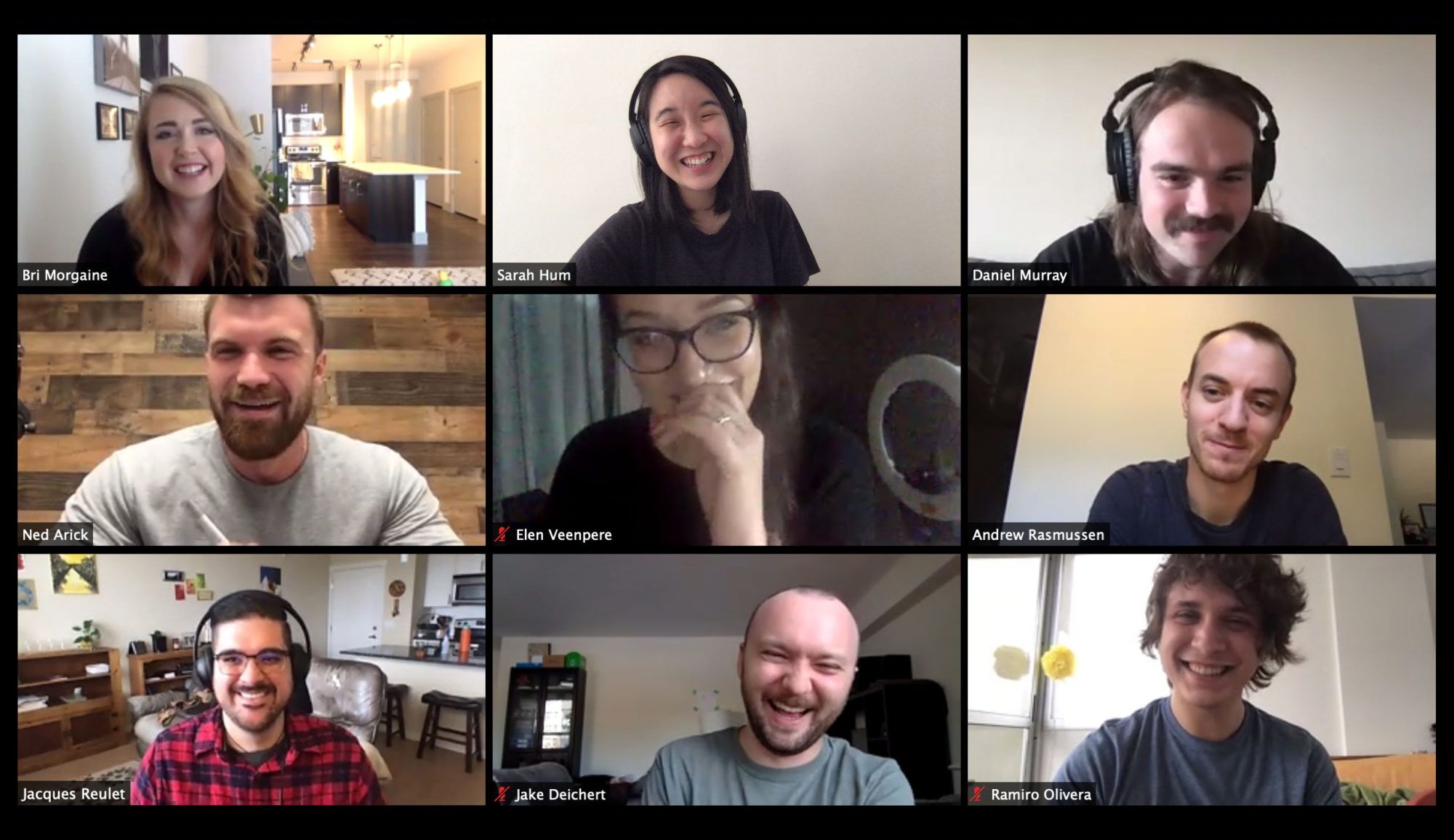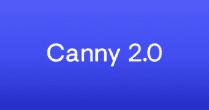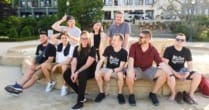First off, we want to say thank you to everyone who read and shared our post about reaching $1m in annual recurring revenue.
We’ve shared a bunch of learning lessons over there, so check it out if you haven’t already. Also see our reviews of year one, two, and three.
Here are highlights from this year:
- Over $1.4m in annual recurring revenue
I still remember the days we were making no money, so this boggles my mind. - 9-person team (hiring for 10!)
We added more stellar people to the team and we’re still all remote. - 0 retreats
More of a lowlight but we’re so looking forward to when we can safely travel again. - Raised $0
Still no plans to change this!
For this review, I want to share some big themes from the last year. We also get questions through Twitter and Indie Hackers so I’ll try to weave those in as well.
Obviously, this past year was a weird one. Andrew and I ended our nomad journey and moved back to Toronto just a few months before things went down.
Days after we published our year 3 review, schools closed, and restaurants went delivery-only. This wouldn’t be a year in review without talking about the pandemic.
Navigating the pandemic
In March 2020, our team was planning our fifth retreat which would be in Mexico City.
Bri, Jake, and Jacques had just joined the team, so we were extra excited. COVID cases were starting to climb but it wasn’t clear yet how serious it was.

As things started getting worse, Andrew and I had to make the tough choice of postponing the retreat. The trip wasn’t worth risking our lives over. Looking back, I’m very glad we made that decision.
Business-wise, we had no idea what to expect. I remembered nothing about the 2008 financial crisis. The cancellations started increasing in March, particularly from customers in industries closely impacted by the virus. April ended up being our worst month ever for churn. We kept a list of COVID-related churn and have since won some of them back.
What we did have control over was our cash balance. Being profitable also means that number is growing every month. Even if we lost 50% of our revenue overnight, we’d still have 18 months of runway.
We were fortunate to already be remote so our work lives didn’t change. We knew it would take a serious collapse to take us down.
Luckily, that didn’t happen. Churn returned to normal in May and we actually had some of our best months of growth after that. Due to working remotely, teams are adopting more products that facilitate team collaboration.
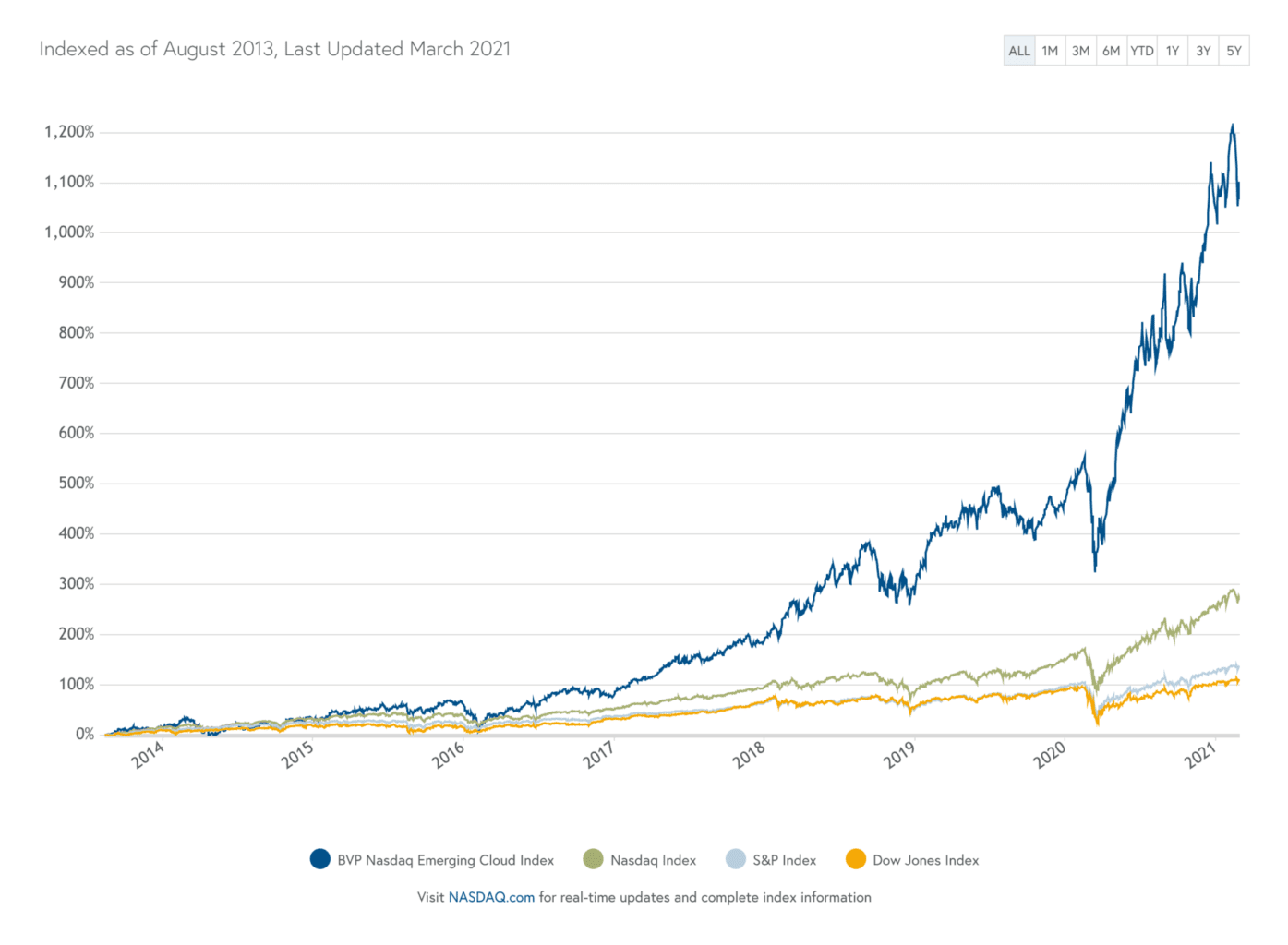
By the end of the year, Ned and Ramiro had joined the team.
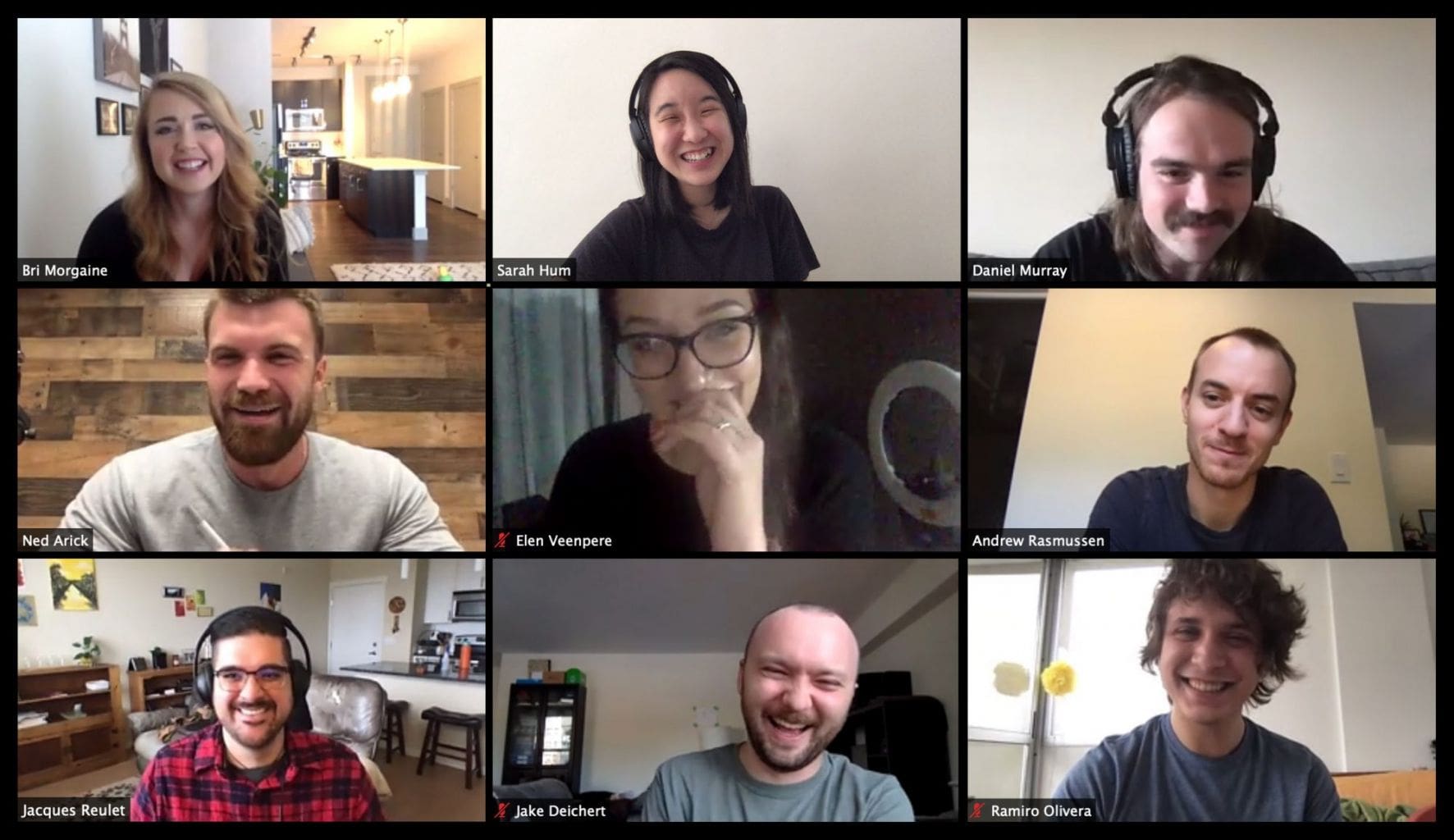
Growth was great. Everyone got a raise and money that we would’ve spent on retreats went to the team via bonuses.
Overall, we’re very lucky to be in an industry that hasn’t been hit especially hard. We’re thankful we have our health and are able to continue operating mostly as usual.
Takeaway: In times of uncertainty, profitability and having a significant runway meant everything. Nobody worried about losing their job. We stayed heads down and powered through.
Founder time split
What Andrew and I spend time doing has changed over the years.

As makers, the early years was a lot of execution: building and designing Canny the product.
Over time, we’ve been doing more and more management. Planning, reviewing work, giving feedback, delegation, people management, and more.
To make room for all that, we’ve had to get good at a few things:
Delegation
If someone else can do a task, we put it on their radar. This was challenging because we were so used to doing small tasks here and there. That said, every little thing adds up.
Delegation has been a struggle for me and I avoided it for a long time.
I didn’t want to be the kind of co-founder who lays back while his team does all the hard work. But at some level, you’re just overloaded and you need help.
I was surprised to find that people actually didn’t mind at all. If anything, they wanted to help.
– Andrew
Andrew’s initial attitude was that he should cover technical support to shield the rest of the team. We now have a support rotation where every engineer (Andrew included) does support for a week.
Suffice to say, trusting our team is a must. It’s their responsibility to decide what they should work on based on impact. They set goals and work to hit them. From there, we have tight feedback loops with our weekly one-on-ones and monthly reviews.
In the past, I knew every single thing that was happening at Canny. Now, I hear about things that I had no idea were happening. It’s a beautiful thing.
Scoping things down
We were pretty good at this already. We’re always focused on shipping MVPs and are conscious of scope creep.
For every added functionality, we ask ourselves:
- Is this required for the feature to work/solve our customers’ problem?
- Is this a really common use case or more of an edge case?
- Is there a workaround?
It’s almost always possible to add functionality afterward. It’s much worse to build something only to rip it out later.
Increasing efficiency
Sometimes there are things we could’ve done in the past to save us compounding time in the future.
Some examples of this:
- In engineering, investing more time in DevOps so we have faster builds, deploys, etc.
- In support, writing help articles and saved replies
- In marketing, setting up more advanced analytics to inform future marketing efforts
Lastly, we’re always keeping an eye on growing gaps in the business. Those are opportunities to bring in more experts.
Takeaway: It’s the small things that really add up and become very disruptive. Especially if they cause a lot of context switching.
Eliminating the small things was crucial to us maintaining our sanity and having a clear mind to think high level.
Starting to do sales
For the first few years, we were an inbound machine. Inbound marketing, to a self-serve trial, to conversion. Every once in a while Andrew and I would do demos. Once Jacques joined us in Customer Success, he took over demoing to smaller prospects while I handled bigger ones.
As Canny matured as a product, we had growing interest from bigger companies. All of them demanded more complex sales cycles. Eventually, I was doing a lot of inbound sales.
A large part of my week was following up with people and doing demos. It was a good problem to have, but it was becoming clear that we should have a dedicated person on sales.
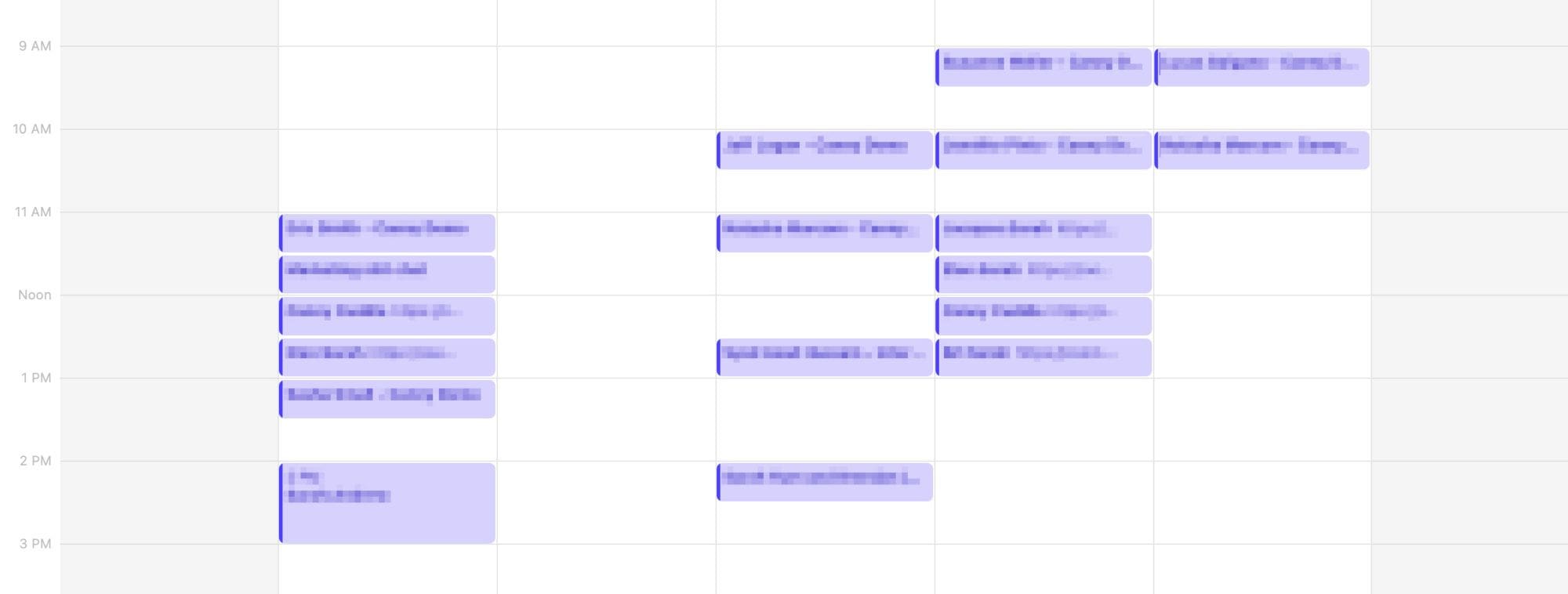
So, we put up our first sales listing. This person would be taking over inbound and spinning up outbound sales for the first time. We were looking for someone we could imagine selling to us. Someone with no ego and who would be a great culture-fit.
Just like with other roles, we had sales candidates do an assignment. We sent them a demo recording of mine and had them give me feedback. We wanted to see if they really knew their stuff and if they could be critical.
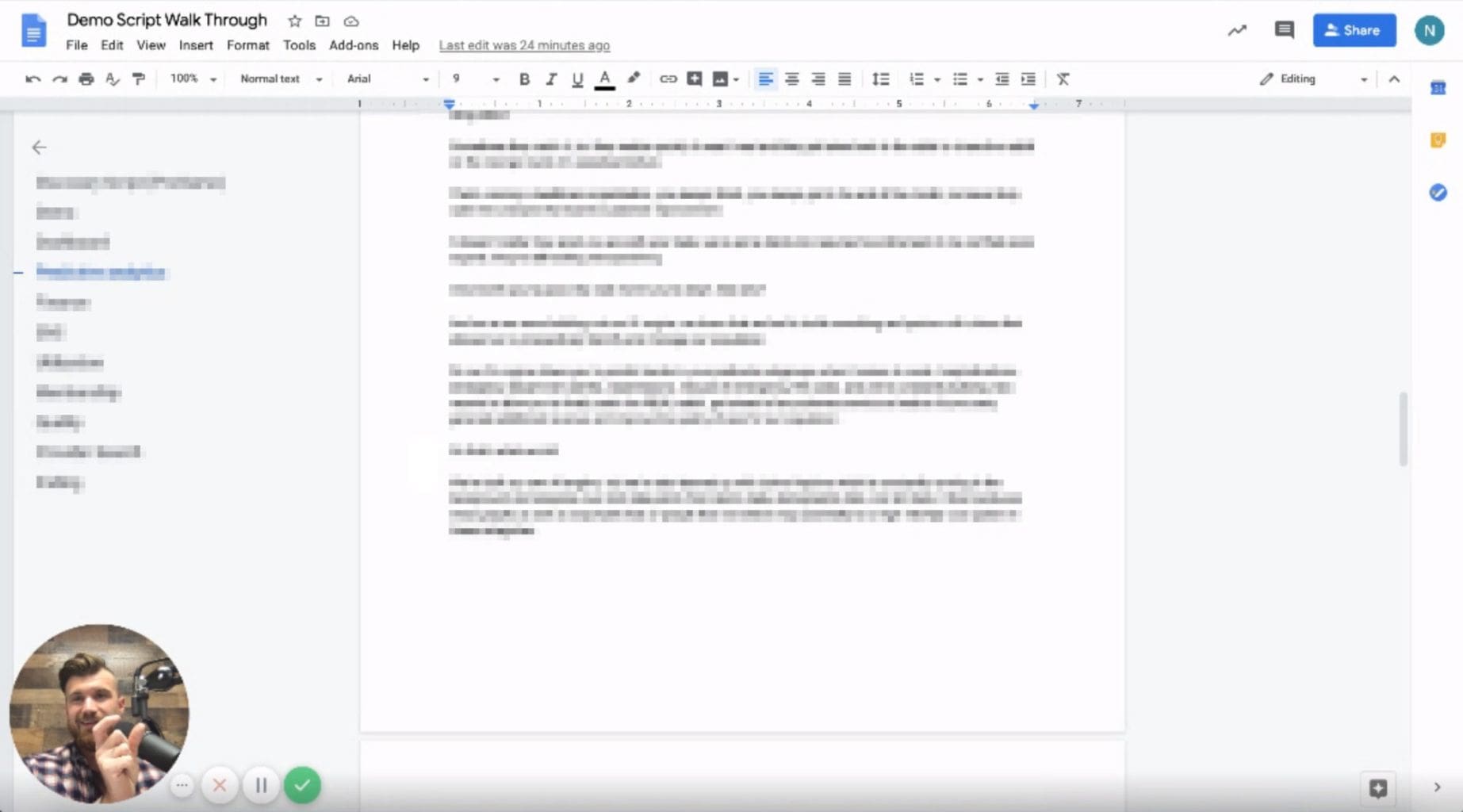
Ned joined us in August 2020 and hit the ground running. For the next few months, he worked on becoming a Canny expert, getting our processes in place, and setting goals. Meanwhile, I ramped down on sales which freed me up significantly.
Takeaway: Unlocking sales can be huge for any company. That said, it takes a lot of time and patience to get right.
For an initial sales hire, look for someone who knows the fundamentals but isn’t afraid to try (and fail at) new approaches. From there, it’s just about testing and iterating on what’s working.
Hiring legal counsel
Another big gap for us was legal.
In general, we try to do a lot of ops-related things ourselves. We got by for a while by drafting our own terms and reviewing contracts. However, legal is harder to skirt around and doing something wrong could have serious consequences. We eventually started to feel in over our heads.
Unlike sales, we didn’t have enough work for a full-time lawyer. We ended up contracting counsel to help us level up. It was important that we handled bigger customers professionally. This also gave us peace of mind since we no longer wonder if we did something wrong.
Takeaway: Being scrappy is great, but we also need to be reasonable and aware of risks. At some point, it makes sense to bite the bullet and bring in professionals.
Everything is a business expense anyway. We just need to make sure we’re still profitable on top of these expenses.
Quality time
We’ve always valued getting to know our teammates beyond work. That’s why we invested a lot into going on team retreats.
Of course, as travel didn’t happen last year, we made do with online team hangouts.
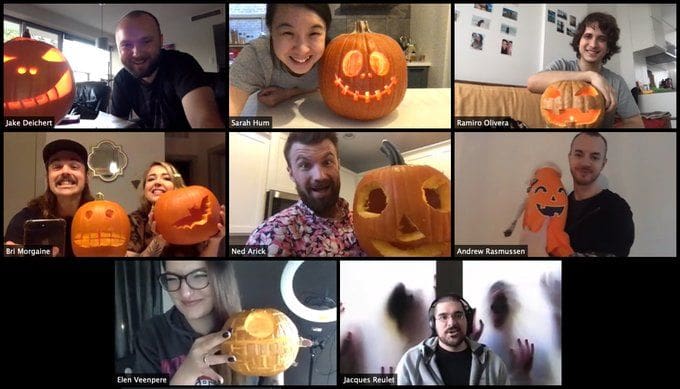
I think we’ve done a really good job with keeping up our culture.
Especially, considering we haven’t been able to have any retreats and have more than doubled the team.
Stuff like this can be super un-motivating and hard on people. We pay very close attention to how team members are doing and feeling, and making sure we still get some quality time.
– Elen
After surveying the team, we decided our sweet spot is scheduling a team hangout every ~6 weeks. Our team especially enjoys playing games together.
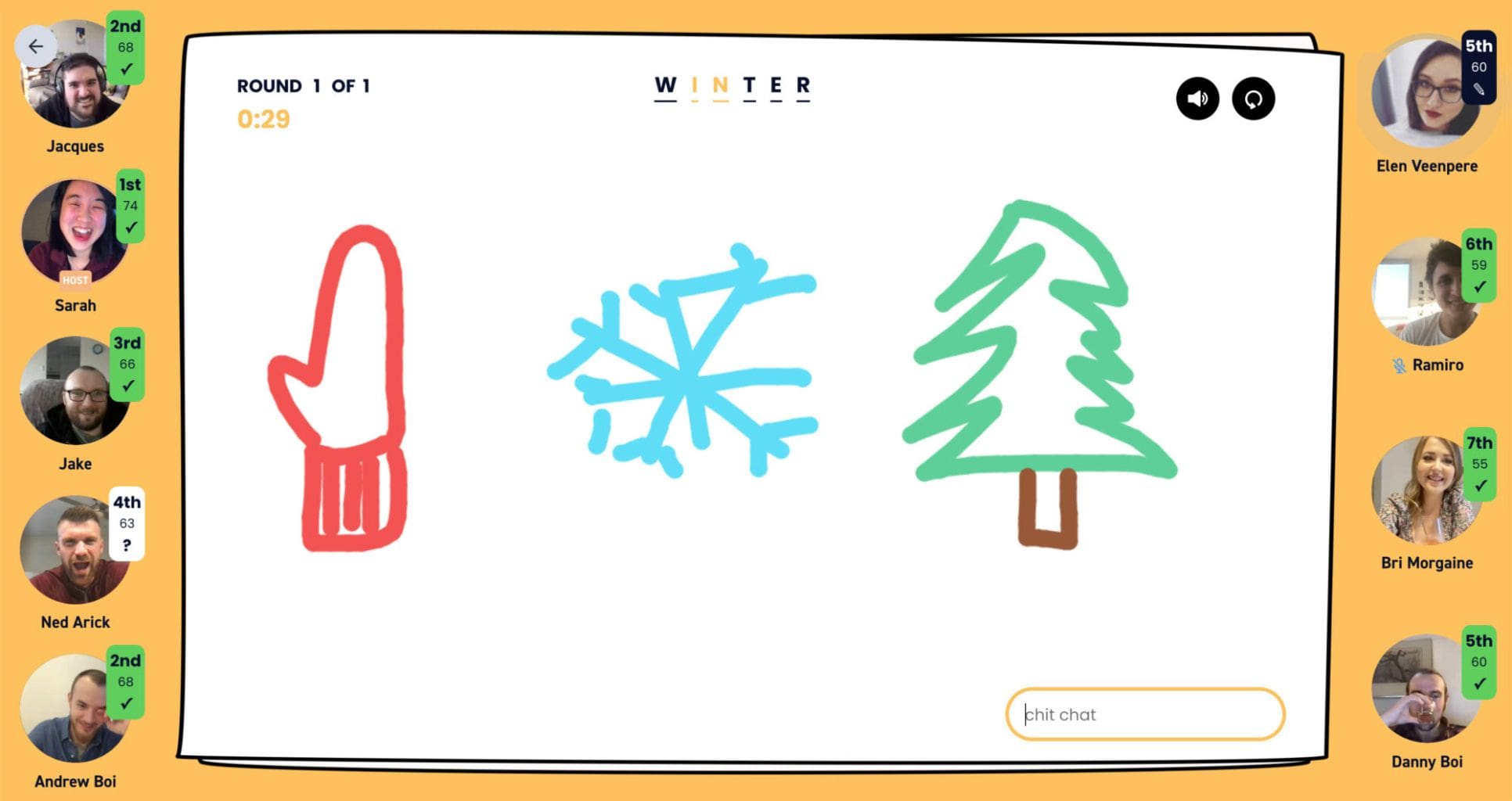
Also, making food together:

We’re excited to teach each other new things, too. Ramiro can pick a pair of handcuffs with a bobby pin and there’s fierce competition over who can cook the best steak. Can’t wait to do an in-person taste test and settle the debate once and for all!
Something we do daily is our Question of the Day (#QOTD) Slack channel. It’s a great, lightweight way for us to connect. The more gifs and emoji reacts, the better.
Having the #QOTD channel has helped me get to know everyone better. I think it’s a helpful resource for building cohesion.
– Jacques
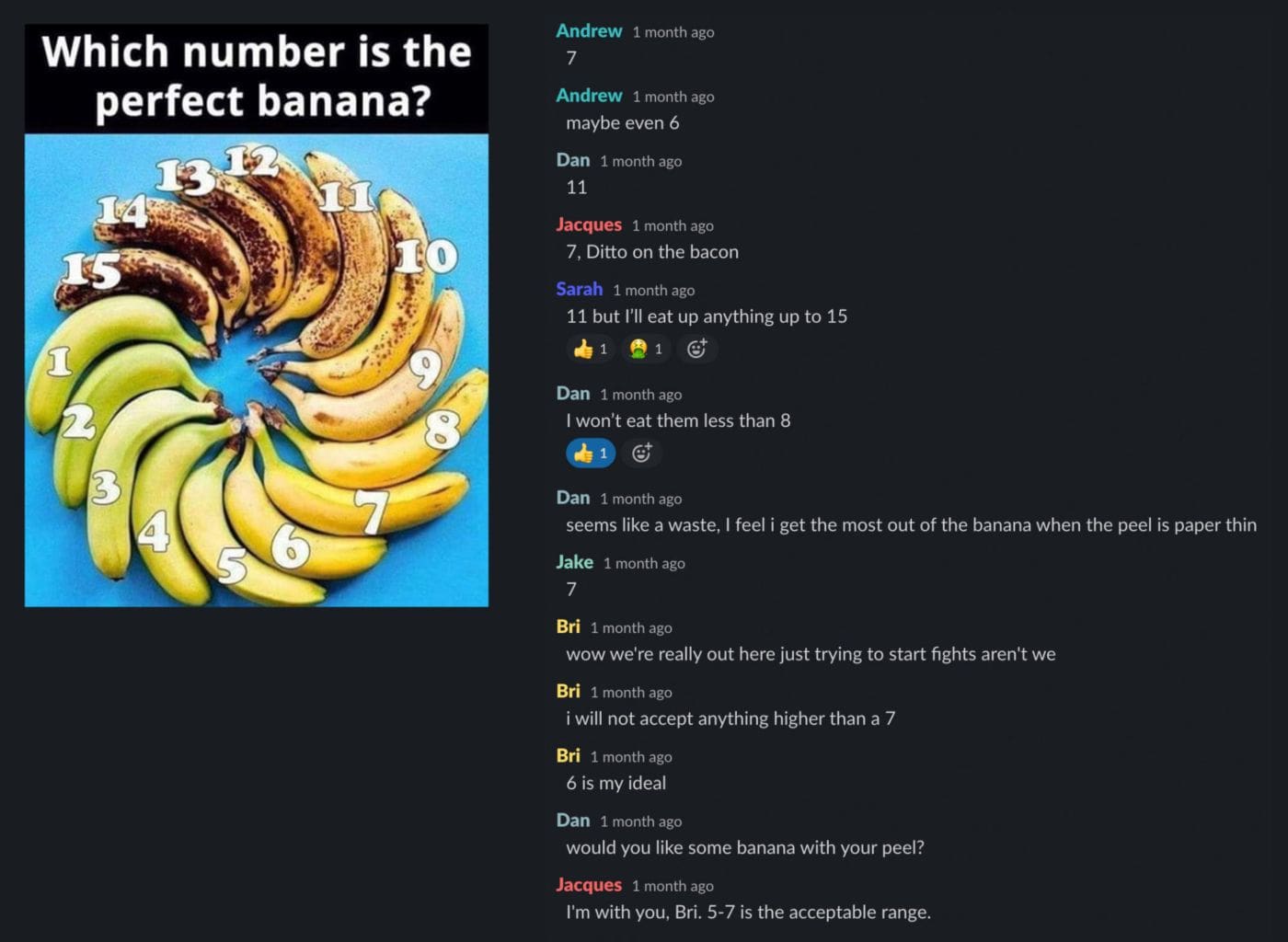
Takeaway: Making sure your team is happy doesn’t have to be a huge effort. Find time to laugh together and learn about each other.
Personal time and personal goals
Working at a startup doesn’t mean putting in 80-hour weeks. We have very reasonable expectations around workload. Which means, we all have time for a life outside of work.
It’s become even more critical for us to find enjoyment after work now that we’re spending so much more time at home.
For Andrew and me, life after work consists of:
- Personal hobbies
- (Some) exercising
- Our dog
Last September, Andrew and I adopted a dog from Korea.
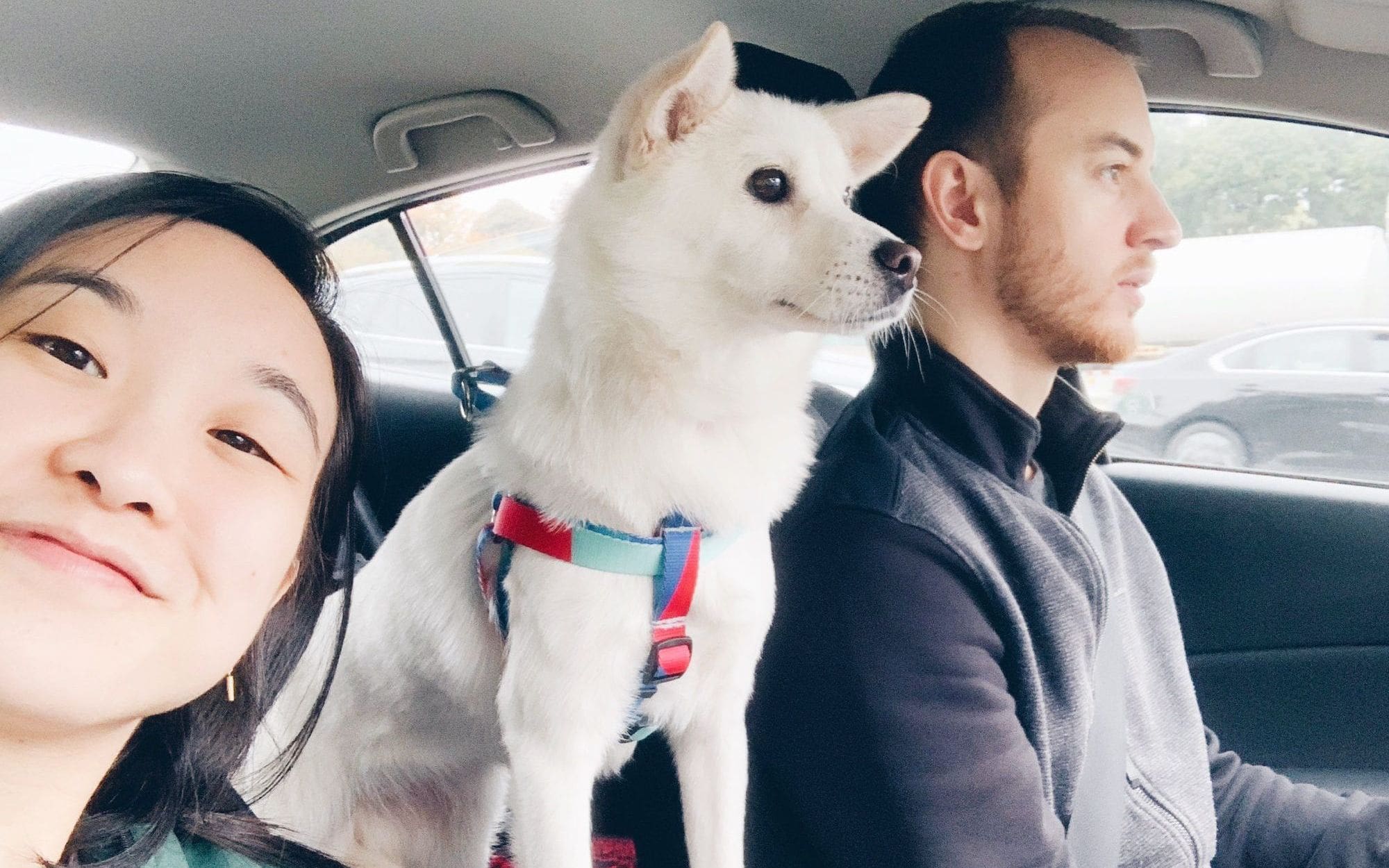
It’s been a big change to take care of someone other than ourselves. While she is a lot of work, it’s been great to have built-in breaks throughout our day. We got very lucky with a quiet, patient, well-behaved pup.
It’s also very rewarding to teach her new things. So far, she knows sit, down, stand, leave it, wave, paws up, middle, pretty, spin, play dead, bow, crawl, pray, get in, back, place, heel, loop, roll over, cover, and cross.
The team did some pretty cool personal stuff last year:
- Jacques: Lost 50lbs and started learning his sixth language.
- Jake: Launched his first public side project.
- Elen: Became an official member of the search/rescue team and volunteer at the fire/rescue department in Estonia.
- Bri: Packed up all her belongings and moved across the country to Austin, Texas, by herself.
- Andrew: Ranked in the top 1% of players in Rocket League.
- Dan: Hit his goal to be under 200lbs and learned 20ish songs on guitar.
- Ramiro: Spent a lot of time with his girlfriend and got back to guitar playing.
- Ned: Got back into coaching strength and conditioning on the side.
- Sarah: Completed over 100 illustrations and hit 75k followers.
Takeaway: Burnout is real. It helps to find fulfillment/passion outside of work.
Year 5
I can’t believe we’re going into year five.
I’m so grateful to the stellar team that we have. They make my job easy by taking initiative and stepping up to challenges. Ned has taken sales off my mind, leaving me with space to do what I’m actually good at. Bri has taken over my dream of having a Canny podcast (stay tuned). Sometimes, the engineering team doesn’t even need mockups from me!
I love being able to do so much with a small team. It really pushes us to stay scrappy and be critical about what we spend our time on.
The thing about a 6% monthly growth goal is it gets 6% harder to hit every month. Year five will be about covering some new use cases to expand our core offering. Having a great product will always be our strength. Our challenge is to solve complex problems with clean, elegant solutions.
Year four was a weird one for reasons outside our control but we made it memorable anyway. I’m excited to go through another great year with this gang.
Onwards to year five!


